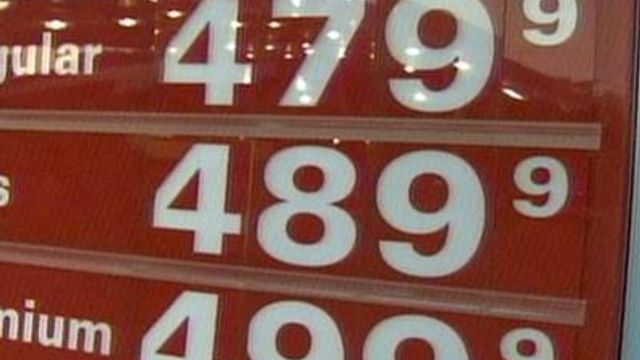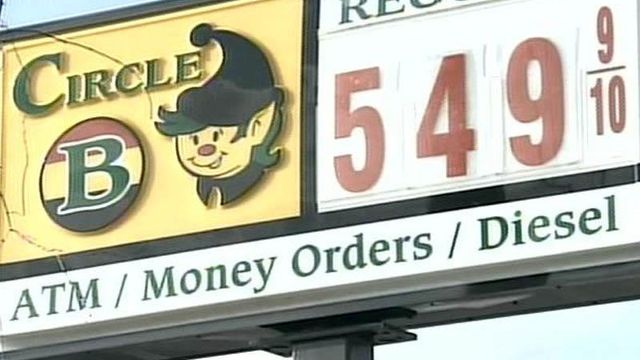Gas stations to be subpoenaed in price gouging investigation
State Attorney General Roy Cooper said starting Monday subpoenas will be sent to certain gas stations in the state – the first step in the state investigating price gouging claims.
Posted — UpdatedAmid fears Hurricane Ike would crippled the country’s oil refining capacity, many Triangle area drivers on Friday rushed to fill up gas tanks creating long lines at several stations, even causing some stations to run out of gas. Throughout the day gas prices fluctuated wildly. WRAL News saw posted prices ranging from $3.51 to $5.49.
“Any station or any wholesaler that’s trying to take advantage of this situation and is gouging consumers will face the music from our office,” Cooper said.
Cooper did not say which gas stations would be receiving subpoenas, but did say the attorney general’s office will be looking for “unreasonably excessive” prices.
“It’s one of those things where you know it when you see it,” Cooper said.
Cooper said just because a station is charging a high price for gas doesn’t necessarily mean that station is guilty of price gouging. The station could be buying gas at high prices from its wholesaler.
At this time, drivers should "shop around" and not get gas unless they need to, Cooper advised.
The average price of gas rose nearly 20 cents in North Carolina overnight.
Prices were lowest along the coast, averaging $3.786 in Wilmington.
Nationally the Ike effect was also seen with gasoline prices surging overnight – to nearly $5 a gallon in some places.
The price jumps came after the wholesale price of gasoline soared to $4.85 a gallon Friday in anticipation of Ike's arrival.
Many stations have contracts to buy gas from suppliers based on prices set by those markets, said Tom Kloza, chief oil analyst with the Oil Price Information Service.
"They aren't gouging; they are simply passing along the wholesale cost," he said. However, a small percentage of stations owned by major oil companies are somewhat insulated from these forces, enabling them to keep prices lower.
Such market fundamentals could last for another few weeks, depending on how quickly Texas and Louisiana refineries shuttered by Ike can come back on line. "It's a mess," Kloza said.
Kloza said prices are more likely to be higher throughout the Southeast because they get fuel from Gulf refineries. He expects nationwide prices to begin falling later in the fall, perhaps as low as $3 a gallon by year's end, based on current oil prices of about $100 per barrel.
They said it was too early to say when the refineries would be restarted.
• Credits
Copyright 2024 by WRAL.com and the Associated Press. All rights reserved. This material may not be published, broadcast, rewritten or redistributed.






